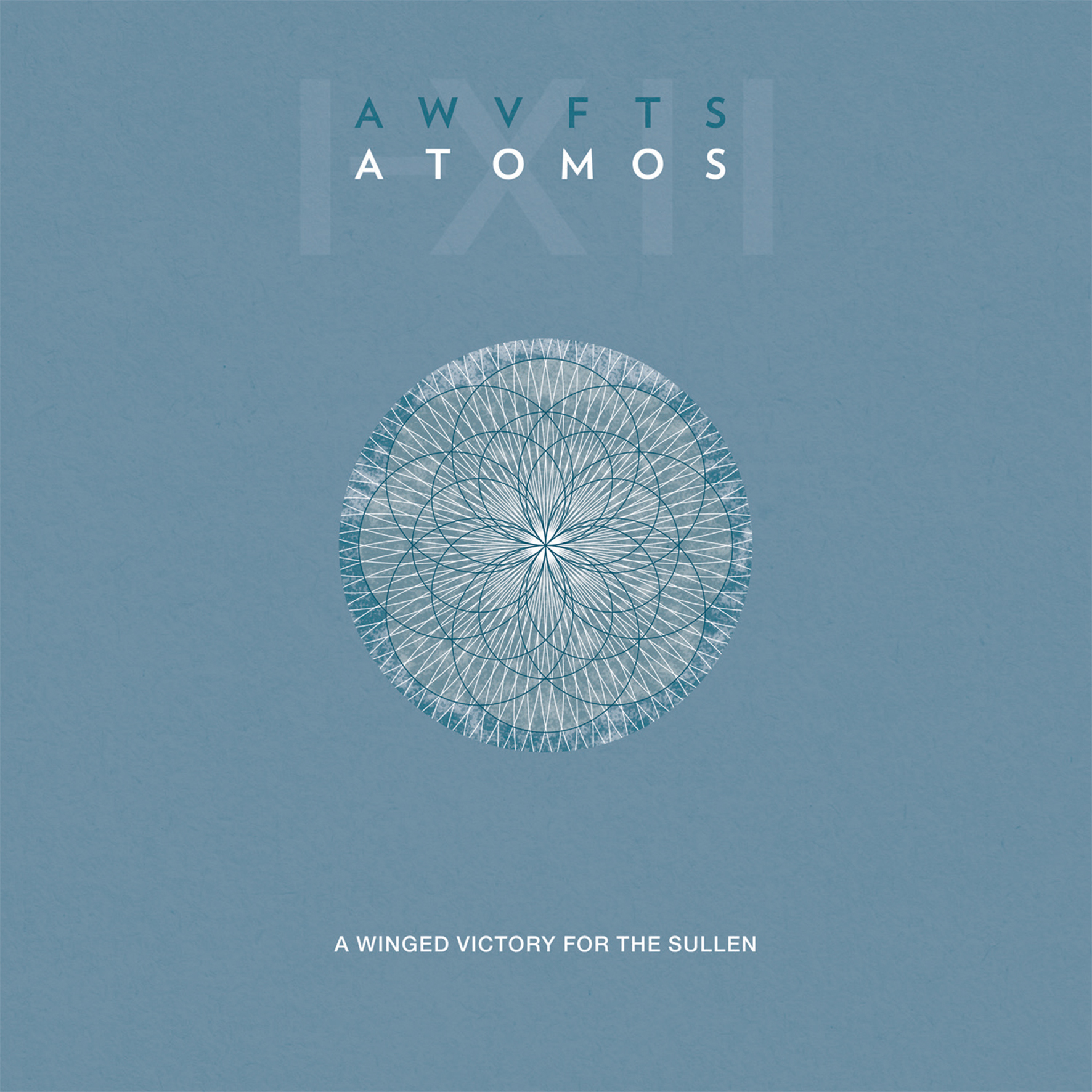A Winged Victory for the Sullen, "Atomos"
 Winged Victory's second full-length album is an hour-long score composed for a dance piece by the Royal Ballet's resident choreographer Wayne McGregor, but the line separating such an endeavor from AWVFTS's traditional activities is thin at best.  First glimpsed earlier this year with the slightly more experimental Atomos VII EP, Atomos offers exactly the sort of the slow-moving, neo-classical melancholia that I have grown to expect from Adam Wiltzie and Dustin O’Halloran, but with some subtle, yet significant, evolution in both their compositional approach and their instrumental palette.
Winged Victory's second full-length album is an hour-long score composed for a dance piece by the Royal Ballet's resident choreographer Wayne McGregor, but the line separating such an endeavor from AWVFTS's traditional activities is thin at best.  First glimpsed earlier this year with the slightly more experimental Atomos VII EP, Atomos offers exactly the sort of the slow-moving, neo-classical melancholia that I have grown to expect from Adam Wiltzie and Dustin O’Halloran, but with some subtle, yet significant, evolution in both their compositional approach and their instrumental palette.
Atomos does not waste any time in showcasing how Adam and Dustin have grown as a duo, as the opening "Atomos I" is arguably the boldest and most fully realized departure from their past work on the entire album.  However, in Winged Victory's world, such changes are very relative: most of the piece still sounds an awful lot like glacially moving ambient drone made with organic instrumentation like piano and strings, but there is a bit more sharpness, clarity, and overt sense of purpose this time around.  "Atomos I" is much more than a bleary, pastoral reverie, as the warm, churning strings boast an unexpected nakedness and prominent physical presence and build to a darkly melodic crescendo that is far more indebted to Philip Glass (albeit not so bombastic) than Victory's previous Satie- and Eno-esque leanings would have led me to expect.
The remaining pieces are rarely that dramatic, however, though the album mostly maintains a lovely and languorous sense of beauty slowly billowing up from warmly static drones.  For the most part, the first half of the album all blurs together pleasantly in that vein, though Wiltzie and O’Halloran sometimes build up to a gentle simmer.  There are some exceptions, however, the most notable of which is "Atomos V," which gradually snowballs from a shimmering pulse and a wonderful one-finger piano melody into a lushly beautiful crescendo of ascending strings.  Things immediately cool back down again (somewhat), but the rest of Atomos is never quite the same again, as the remaining pieces are considerably more prone to drama and other divergences from the duo's earlier droning.
Both "Atomos VI" and "Atomos VIII" stand out as being particularly dark and forceful, incorporating unexpected touches like static; shuddering masses of strings; throbbing underlying tension; and dark, vaporously dissolving violin arpeggios.  The album later reaches a second crescendo of sorts with "Atomos X," which builds from a quavering, crackling, and pulsing synth intro into one of the album's stronger minor key string arpeggios.  This time, however, the duo depart from their traditional minimalist patterns to delve into some bittersweet harmonies and a lovely descending melody that dissipates into a coda of chattering, garbled voices.  That is probably the melodic and artistic zenith of Atomos’s arc, but the remaining two pieces do a perfectly fine job of bringing the score to a satisfying conclusion, taking the album to a propulsive and sweepingly melancholy climax before resolving into simple and elegant final act centered around a naked, sharply realized two-note violin pattern.
While I am left with several perplexing questions ("Why is there no 'Atomos IV?', "Why didn't they choose a more striking piece than 'Atomos VII' for the teaser EP?", and "Could this have been even better if they had kept working with Ben Frost?"), none of them are serious enough to hamper my enjoyment at all. Sound engineer/collaborator Francesco Donadello does a fantastic job making Winged Victory sound more crisp and alive than they generally have in the past and it is difficult to imagine anyone who would not concede that Atomos reaches higher highs than the duo's self-titled debut.  It is a true rarity for a film or dance score to hold its own as a stand-alone album or even to favorably compare to an artist's other work, since such music is inherently intended as background or a mere part of a larger, multi-sensory whole.  While Atomos is not entirely impervious to those intrinsic problems, it tends to transcend them more often than not, resulting in an effort that is probably the duo's single finest showing to date.
 
 



